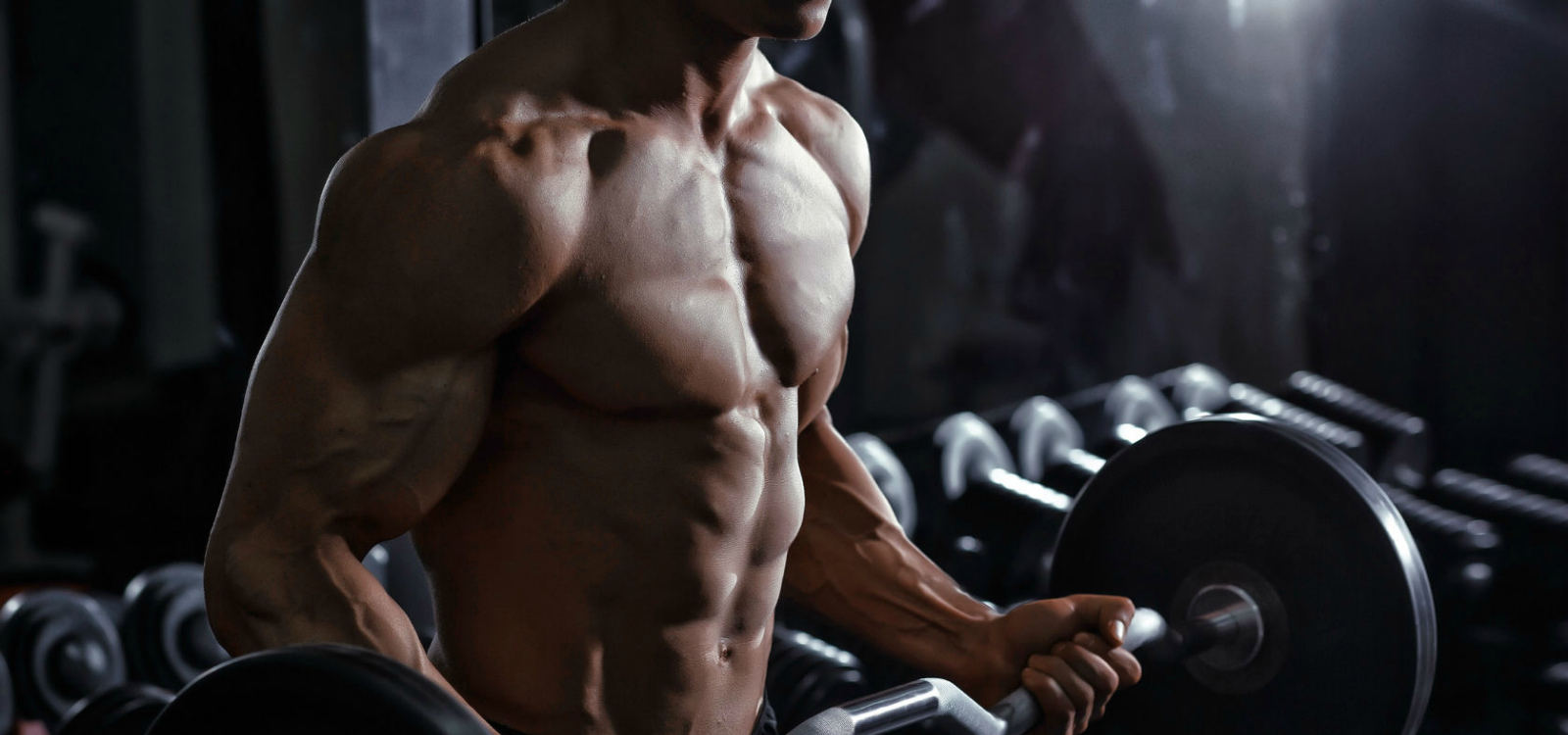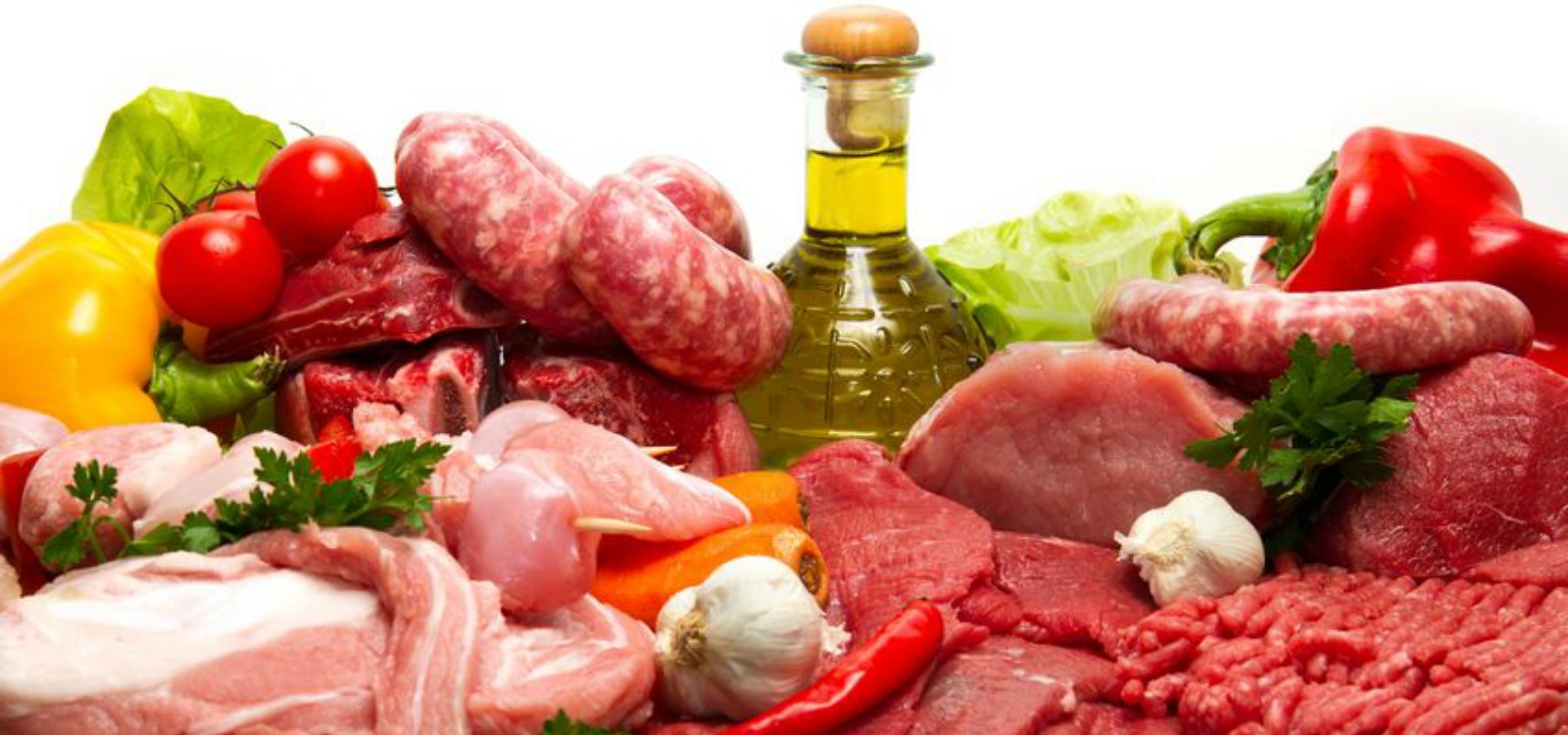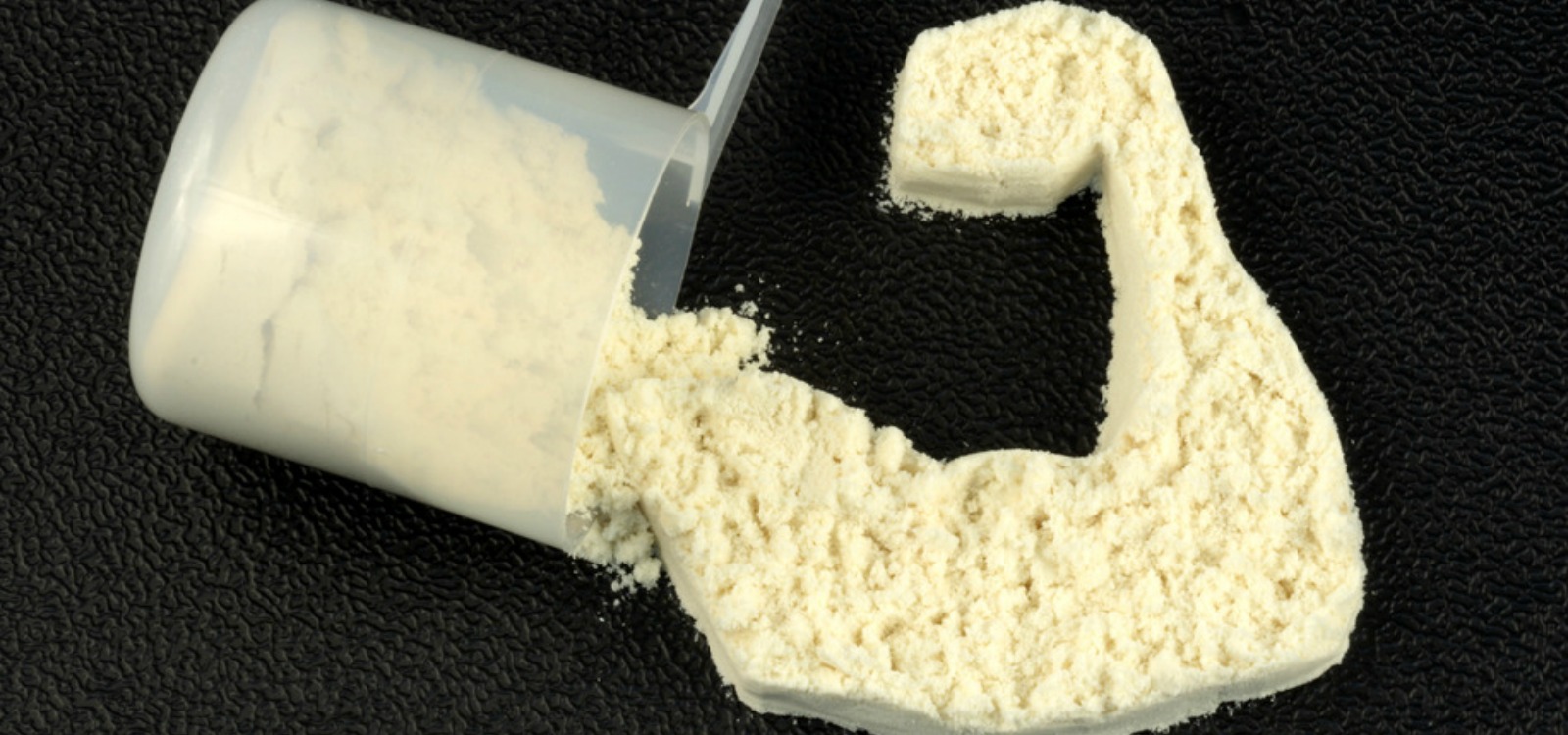Key Takeaways
- Teenagers absolutely can lift weights safely and effectively. It’s not dangerous and doesn’t stunt growth.
- Don’t worry about getting “shredded” until you’re older and your body is fully developed.
- Supplements don’t build great physiques. Dedication to proper training and nutrition does.
If you’re like most teenagers, you want to be muscular, lean, and strong.
Maybe you want to look like those ripped guys and gals you see on social media, or maybe you just want to be better at sports.
And so you want to get serious about weightlifting, and for good reason–it’s the best way to gain muscle and strength.
You might have some concerns, though.
Some people say that teenagers can’t build any muscle to speak of until their bodies are more developed. Others say that it’s dangerous and will possibly even stunt growth.
Well, I have good news:
Teenagers absolutely can lift weights safely and effectively.
Weightlifting isn’t nearly as dangerous as many people think and doesn’t stunt growth, and if you start young, you can enter your twenties with the type of body that most people can only dream of and be well on your way to long-term health, happiness, and well-being.
So, if you’re ready to get a head start on building your best body ever, then keep reading…
Table of Contents
+
Weightlifting Isn’t Dangerous and Doesn’t Stunt Growth
Contrary to what some people think, research shows that bodybuilding is one of the safest “sports” you can engage in.
Case in point:
In one review of 20 studies, scientists found that, on average, bodybuilding produced just one injury for every 1,000 hours of training.
To put that in perspective, if you spend 5 hours per week weightlifting, you could go almost four years without experiencing any kind of injury whatsoever.
Researchers also noted that most of the injuries tended to be minor aches and pains that didn’t require any type of special treatment or recovery protocols. In most cases, rest with a bit of ice and heat wins the day.
For comparison, sports like ice hockey, football, soccer, and rugby have injury rates ranging from 6 to 260 per 1,000 hours, and long-distance runners can expect about 10 injuries per 1,000 hours of pavement pounding.
In other words, you’re about 6 to 10 times more likely to get hurt playing everyday sports than hitting the gym for some heavy weightlifting.
That said, weightlifting can be quite unsafe when done improperly.
If you don’t learn proper form on key exercises and take care to progress gradually, it’s very easy to get hurt in the gym. If you do, though, your chances of injury are quite slim.
the fear that weightlifting will retard growth stems largely from research published in the 1970’s on Japanese child laborers.
It was found that these kids, who often carried heavy loads, tended to be shorter than the norm, which gave rise to the theory that lifting heavy things when you’re young might stunt growth.
This sounded plausible enough and spread like chain lightning, but it not only has no legitimate scientific evidence to back it up, it has actually been refuted by other research.
For example, a study conducted by scientists at German Sport University found that weightlifting had no effect on height, even when kids started as young as 6 years old. Similar findings were reported in an extensive review of research on elite young athletes conducted by French scientists.
Teen Weightlifting Tip #1
Learn Proper Technique

The single most common weightlifting mistake people make is using improper technique.
You know, stuff like…
- Rounding the lower back while deadlifting
- Bouncing the bar off the chest while benching
- Letting the knees cave inward while squatting
These types of errors usually stem from simply not knowing what proper technique is or taking the time to learn it or being too aggressive with progression, add weight too soon and sacrificing form for load.
Don’t make these mistakes.
Your first priority in your weightlifting journey should be learning proper technique on the big compound lifts like the squat, deadlift, bench press, and overhead press.
These are the exercises that are going to give you the most bang for your buck in the gym, and thus are the exercises that you want to improve the most on.
Then, once you know what good technique is, resist the urge to stray from it in hopes of faster progress. Remember that high-quality reps are not only safer than sloppy ones, they’re more productive as well.
Teen Weightlifting Tip #2
Eat a High-Protein & High-Carb Diet
There’s little debate that a high-protein diet is best for building muscle.
Protein provides your body with the raw materials necessary for creating muscle tissue, so if you don’t eat enough, you’ll always struggle to gain muscle.
What is “enough,” though?
Well, it’s quite a bit more than most people are used to eating, but not quite as much as some people claim.
Research shows that eating 0.8 to 1 gram of protein per pound of bodyweight per day is ideal for muscle gain.
If you’re very overweight (25%+ body fat in men and 30%+ in women), then this can be reduced to around 1 gram of protein per pound of fat-free mass per day.
Either way, it usually comes out to around 30 to 40% of total daily calories from protein.
Now, while most people understand the importance of eating adequate protein, carbs are another story.
Low-carb diets are a “thing” these days, but they really don’t deserve the hype because they don’t help you lose fat faster, and they most definitely don’t help you gain muscle faster, either.
To the contrary, eating a carbohydrate-rich diet has a couple of key muscle-building benefits.
- It improves workout performance, which means you can push yourself harder and progress faster.
- It improves post-workout recovery, which means you can train more frequently and intensely.
High-carb diets also help you preserve muscle when you’re cutting, which helps you reach your ideal body composition faster.
So, here’s the bottom line:
If you want to gain muscle as quickly as possible, then you want to eat more and not less carbs.
A good starting place is getting 30 to 50% of your total daily calories from carbs.
Want to know more about how much protein and carbs you should eat? Check out this article.
Teen Weightlifting Tip #3
Don’t Worry About Getting “Shredded” Just Yet

Most young people get into weightlifting to look lean and jacked.
You know, like Zac Efron in Baywatch.
While learning how to control and optimize your body composition is a fantastic way to develop self-control, personal mastery, and commitment, if you take it too far, it becomes physically and psychologically unhealthy.
You see, to get “shredded,” you have to reduce your body fat levels to around 6 to 8% for men and 12 to 16% for women.
There are two problems here.
- It requires long-term caloric restriction, which can make your bones weaker, sap your energy levels, impair the production of growth hormone, cause menstrual dysfunction, and even stunt growth.
- It’s often not healthy to maintain such body fat levels even when you’re an adult, let alone when you’re a teenager and your body is still developing.
In other words, younger people just aren’t supposed to be ripped in the way that adults are.
Here’s the good news, though:
You don’t need to get as big and lean as you might think to have a great physique.
If you’re a young guy walking around with an additional 15 to 20 pounds of muscle at 10% body fat, your friends are going to think that you look like a Greek god. For girls, all it takes to have that killer bikini body (and booty) is an additional 5 to 10 pounds of muscle at 20% body fat.
Don’t worry about getting leaner than that until your body is fully developed and done growing (20 years old and up for most people).
Teen Weightlifting Tip #4
Get Most of Your Calories from Nutritious Foods

The exact foods that you eat have little impact on your body composition.
You can lose weight and gain muscle eating “unhealthy” food so long as your calories and macros are set up properly.
That’s why food choices are given short shrift by many people in the “IIFYM” crowd, who understand the fundamentals of energy balance.
Well, just because you can eat a nutritionally bankrupt diet and be lean and muscular doesn’t mean you should, especially when you’re young.
There’s a reason why people that eat higher amounts of fruits and vegetables are, on the whole, healthier and more likely to live longer, disease-free lives than those who don’t eat enough.
Your body requires a lot more than calories, protein, carbohydrate, and fat to stay healthy and vital. It needs nourishment in the form of vitamins, minerals, and other micronutrients.
Moreover, the habits that you develop when you’re young tend to bey very “sticky” as you get older, so if you develop good eating habits when you’re young, Future You is going to find it much easier to eat well.
On the other hand, eat poorly as a teenager and Future You might have to deal with a whole host of physiological and even psychological health conditions that will make it very hard to be healthy and happy.
So use this opportunity wisely.
Learn how to prepare healthy, delicious meals, how to enjoy treats and sweets in moderation, and how to eat intuitively as opposed to weighing and tracking everything that you eat.
Teen Weightlifting Tip #5
Don’t Take Steroids
When you’re young, it’s easy to look at people who’ve been training for years and get discouraged.
It seems like everyone is bigger, leaner, and stronger than you, and it’s hard to see yourself ever measuring up.
Then you hear about steroids and can’t help but wonder how a cycle or two might accelerate your progress.
“They can’t be that bad,” you think. “I’m young, I’ll probably be fine…”
Actually, you probably won’t.
Steroids can cause severe and permanent problems in adults, and they’re even more dangerous for teenagers.
For example, steroids are known to stunt growth in adolescents by retarding skeletal development.
Fortunately, you don’t need steroids either as a teenager or adult to get the body that you really want. If you put in 3 to 5 years of high-quality work, you can gain a tremendous amount of muscle and strength.
Teen Weightlifting Tip #6
Be a Supplement Minimalist

Frankly, teens can skip supplements altogether and be just fine.
There are far too many young guys (and some women) who think that they have to choke down handfuls of pills and powders to get the body that they really want.
This simply isn’t true.
Supplements don’t build great physiques. Dedication to proper training and nutrition does.
Unfortunately, the supplement industry is plagued by pseudoscience, ridiculous hype, misleading advertising and endorsements, products full of junk ingredients, underdosing key ingredients, and many other shenanigans.
Most supplement companies produce cheap, junk products and try to dazzle you with ridiculous marketing claims, high-profile (and very expensive) endorsements, pseudo-scientific babble, fancy-sounding proprietary blends, and flashy packaging.
Worse still, in many cases, you really don’t know what you’re putting into your body.
For example, many supplement manufacturers use raw ingredients that contain high levels of heavy metals and other toxins, one company was spiking their pre-workout with an methamphetamine-like drug, and another was selling a fat burner that contained Prozac and chemicals that caused liver damage and even failure.
This is why doctors often recommend that teenagers avoid sports nutrition supplements altogether, and I agree. The potential benefits just aren’t worth the risks.
That said, if you’re dead set on adding supplements to your regimen, here’s what you should know.
- Protein powder can be convenient if you often find yourself in situations where eating whole meals just isn’t possible, like when you’re traveling.
- Pre-workout is generally fine, but don’t get into the habit of over-caffeination. Generally speaking, you should keep your daily caffeine intake below 400 milligrams at most, and 200 milligrams is probably safer.
- Multivitamin supplements can help supply a few key nutrients that tend to be lacking in most people’s diets like vitamins D, E, and K.
- Creatine is generally not recommended for people under the age of 18, but there’s no scientific evidence that it’s harmful for healthy teens.
Teen Weightlifting Tip #7
Get 7 to 10 Hours of Sleep Every Night

Research shows that inadequate sleep can slow weight loss, promote weight gain and muscle loss, and reduce testosterone levels.
The bottom line is that your sleep hygiene is like your diet—it’s either working for you or against you.
Sleep poorly for too long, and the consequences can be dire. Sleep well, though, and the benefits can be surprisingly far-reaching.
When you give your body enough high-quality sleep, you’ll perform better in the gym, and you’ll gain muscle and lose fat faster. Oh, and you’ll probably feel better throughout the day, learn faster, and live longer, too.
How much sleep do you really need, though?
Well, sleep needs vary from individual to individual, but according to the National Sleep Foundation, teenagers and young adults need 7 to 10 hours of sleep per night to avoid the negative effects of sleep deprivation.
If you’re lifting weights regularly, you’ll want to aim for the higher end of that range because research shows that getting 10 to 12 hours of sleep every night can significantly improve your physical performance and recovery.
Since many things like diet, exercise, genetics, and age ultimately affect how much sleep your body needs, a simple way to determine what’s optimal for you is to pick a two-week period such as a vacation and go to bed at the same time each night without an alarm set.
Chances are you’ll sleep longer than usual at first if you have “sleep debt” to cancel out, but toward the end of the second week, your body will establish a pattern of sleeping about the same amount every night.
When that happens, it’s trying to tell you something: that’s how much sleep it needs.
The Bottom Line on Teen Weightlifting
There’s nothing wrong with lifting weights in your teens, but you have to be smart about it.
If you don’t know what you’re doing in the gym, it doesn’t take much to screw your body up, and if you get too fanatical about your body image, you can set yourself up for serious problems down the road.
Follow the advice laid out in this article, though, and you’ll have no trouble safely gaining muscle and strength while also developing a healthy relationship with food and optimizing your body composition.
To summarize, here’s what you need to do:
- Learn proper technique for all exercies, and particularly the squat, bench press, deadlift, and military press.
- Eat a high-protein and high-carb diet.
- Don’t try to get or stay super lean.
- Get most of your calories from nutritious foods.
- Don’t take steroids.
- Don’t get aggressive with supplementation.
- Get plenty of sleep every night.
What’s your take on teens and weightlifting? Have anything else you’d like to share? Let me know in the comments below.
Scientific References +
- Mah, C. D., Mah, K. E., Kezirian, E. J., & Dement, W. C. (2011). The effects of sleep extension on the athletic performance of collegiate basketball players. Sleep, 34(7), 942–950. https://doi.org/10.5665/SLEEP.1132
- Rodin, J., McAvay, G., & Timko, C. (1988). A longitudinal study of depressed mood and sleep disturbances in elderly adults. Journals of Gerontology, 43(2). https://doi.org/10.1093/geronj/43.2.P45
- Mazzotti, D. R., Guindalini, C., Moraes, W. A. dos S., Andersen, M. L., Cendoroglo, M. S., Ramos, L. R., & Tufik, S. (2014). Human longevity is associated with regular sleep patterns, maintenance of slow wave sleep, and favorable lipid profile. Frontiers in Aging Neuroscience, 6(JUN). https://doi.org/10.3389/fnagi.2014.00134
- Hershner, S. D., & Chervin, R. D. (2014). Causes and consequences of sleepiness among college students. In Nature and Science of Sleep (Vol. 6, pp. 73–84). Dove Medical Press Ltd. https://doi.org/10.2147/NSS.S62907
- Leproult, R., & Van Cauter, E. (2011). Effect of 1 week of sleep restriction on testosterone levels in young healthy men. In JAMA - Journal of the American Medical Association (Vol. 305, Issue 21, pp. 2173–2174). JAMA. https://doi.org/10.1001/jama.2011.710
- Nedeltcheva, A. V., Kilkus, J. M., Imperial, J., Schoeller, D. A., & Penev, P. D. (2010). Insufficient sleep undermines dietary efforts to reduce adiposity. Annals of Internal Medicine, 153(7), 435–441. https://doi.org/10.7326/0003-4819-153-7-201010050-00006
- Cooper, R., Naclerio, F., Allgrove, J., & Jimenez, A. (2012). Creatine supplementation with specific view to exercise/sports performance: An update. In Journal of the International Society of Sports Nutrition (Vol. 9, p. 33). BioMed Central. https://doi.org/10.1186/1550-2783-9-33
- Clarke, B. L., & Khosla, S. (2009). Androgens and bone. Steroids, 74(3), 296–305. https://doi.org/10.1016/j.steroids.2008.10.003
- Nilsson, S. (1995). Androgenic anabolic steroid use among male adolescents in Falkenberg. European Journal of Clinical Pharmacology, 48(1), 9–11. https://doi.org/10.1007/BF00202164
- Hartgens, F., & Kuipers, H. (2004). Effects of androgenic-anabolic steroids in athletes. In Sports Medicine (Vol. 34, Issue 8, pp. 513–554). Sports Med. https://doi.org/10.2165/00007256-200434080-00003
- Olafsdottir, A. S., Torfadottir, J. E., & Arngrimsson, S. A. (2016). Health behavior and metabolic risk factors associated with normal weight obesity in adolescents. PLoS ONE, 11(8). https://doi.org/10.1371/journal.pone.0161451
- Wang, X., Ouyang, Y., Liu, J., Zhu, M., Zhao, G., Bao, W., & Hu, F. B. (2014). Fruit and vegetable consumption and mortality from all causes, cardiovascular disease, and cancer: Systematic review and dose-response meta-analysis of prospective cohort studies. BMJ (Online), 349. https://doi.org/10.1136/bmj.g4490
- Modan-Moses, D., Yaroslavsky, A., Kochavi, B., Toledano, A., Segev, S., Balawi, F., Mitrany, E., & Stein, D. (2012). Linear Growth and Final Height Characteristics in Adolescent Females with Anorexia Nervosa. PLoS ONE, 7(9). https://doi.org/10.1371/journal.pone.0045504
- Fontana, L., Klein, S., & Holloszy, J. O. (2010). Effects of long-term calorie restriction and endurance exercise on glucose tolerance, insulin action, and adipokine production. Age, 32(1), 97–108. https://doi.org/10.1007/s11357-009-9118-z
- Sundgot-Borgen, J. (1994). Eating Disorders in Female Athletes. In Sports Medicine (Vol. 17, Issue 3, pp. 176–188). Sports Med. https://doi.org/10.2165/00007256-199417030-00004
- Nazem, T. G., & Ackerman, K. E. (2012). The Female Athlete Triad. Sports Health, 4(4), 302–311. https://doi.org/10.1177/1941738112439685
- Mettler, S., Mitchell, N., & Tipton, K. D. (2010). Increased protein intake reduces lean body mass loss during weight loss in athletes. Medicine and Science in Sports and Exercise, 42(2), 326–337. https://doi.org/10.1249/MSS.0b013e3181b2ef8e
- Burke, L. M., Kiens, B., & Ivy, J. L. (2004). Carbohydrates and fat for training and recovery. Journal of Sports Sciences, 22(1), 15–30. https://doi.org/10.1080/0264041031000140527
- Helms, E. R., Aragon, A. A., & Fitschen, P. J. (2014). Evidence-based recommendations for natural bodybuilding contest preparation: Nutrition and supplementation. In Journal of the International Society of Sports Nutrition (Vol. 11, Issue 1, pp. 1–20). BioMed Central Ltd. https://doi.org/10.1186/1550-2783-11-20
- Ratel, S. (2010). High-intensity and resistance training and elite young athletes. Medicine and Sport Science, 56, 84–96. https://doi.org/10.1159/000320635
- Behringer, M., Vom Heede, A., Yue, Z., & Mester, J. (2010). Effects of resistance training in children and adolescents: A meta-analysis. In Pediatrics (Vol. 126, Issue 5). Pediatrics. https://doi.org/10.1542/peds.2010-0445
- Behm, D. G., Faigenbaum, A. D., Falk, B., & Klentrou, P. (2008). Canadian Society for Exercise Physiology position paper: Resistance training in children and adolescents. In Applied Physiology, Nutrition and Metabolism (Vol. 33, Issue 3, pp. 547–561). Appl Physiol Nutr Metab. https://doi.org/10.1139/H08-020
- Videbæk, S., Bueno, A. M., Nielsen, R. O., & Rasmussen, S. (2015). Incidence of Running-Related Injuries Per 1000 h of running in Different Types of Runners: A Systematic Review and Meta-Analysis. Sports Medicine, 45(7), 1017–1026. https://doi.org/10.1007/s40279-015-0333-8
- Moore, I. S., Ranson, C., & Mathema, P. (2015). Injury Risk in International Rugby Union: Three-Year Injury Surveillance of the Welsh National Team. Orthopaedic Journal of Sports Medicine, 3(7). https://doi.org/10.1177/2325967115596194
- Spinks, A. B., & McClure, R. J. (2007). Quantifying the risk of sports injury: A systematic review of activity-specific rates for children under 16 years of age. In British Journal of Sports Medicine (Vol. 41, Issue 9, pp. 548–557). BMJ Publishing Group. https://doi.org/10.1136/bjsm.2006.033605
- Keogh, J. W. L., & Winwood, P. W. (2017). The Epidemiology of Injuries Across the Weight-Training Sports. In Sports Medicine (Vol. 47, Issue 3, pp. 479–501). Springer International Publishing. https://doi.org/10.1007/s40279-016-0575-0










